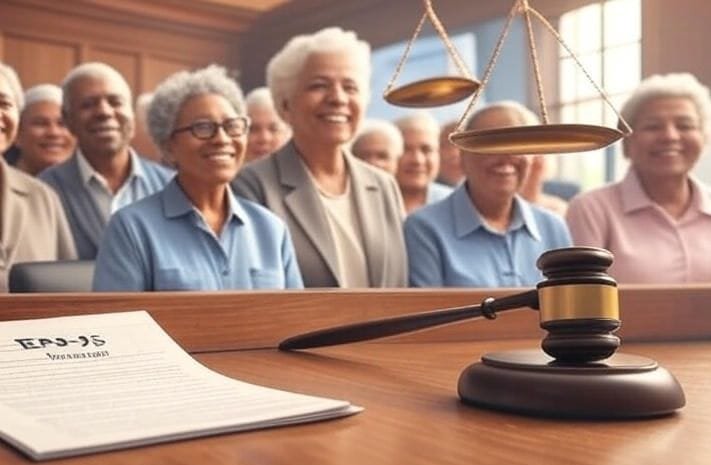Madurai, September 18, 2025 – In a significant ruling, the Madurai Bench of the Madras High Court has paved the way for retired employees of exempted establishments, who retired after September 1, 2014, to claim higher pensions under the Employees’ Pension Scheme (EPS-95). The court’s decision, delivered on September 2, 2025, addresses a long-standing dispute between pensioners and the Employees’ Provident Fund Organisation (EPFO), offering relief to retirees seeking enhanced pension benefits.
The case, brought forward by 86 former employees of Bharat Heavy Electricals Limited (BHEL), Trichy, challenged the EPFO’s rejection of their joint application for higher pensions. The EPFO had cited restrictive trust rules of exempted establishments as the basis for denial. However, the court ruled that such rules cannot override the statutory benefits guaranteed under the EPS-95 scheme. The verdict emphasizes that employees who retired after September 1, 2014, are eligible to apply for a higher pension, provided they submit a joint option application by January 31, 2025.
Justice R. Vijayakumar, presiding over the case, struck down an EPFO circular dated January 18, 2025, which prohibited exempted establishments from amending their trust rules retrospectively to align with a 2022 Supreme Court ruling. The Supreme Court’s judgment had allowed employees to contribute 8.33% of their actual salaries—beyond the ₹15,000 monthly cap—toward their pension fund, enabling higher pension benefits. The Madras High Court clarified that the EPFO’s stance, which relied on trust rules to deny higher pensions, was “factually incorrect” and legally unsustainable. The court noted that beneficial provisions under the EPS-95 scheme apply automatically to employees, even without formal amendments to trust rules.
The petitioners, represented by advocate G. Srinivasan, argued that the EPFO’s refusal to accept their joint option for higher pension contributions violated their rights under the scheme. The court agreed, directing the EPFO to process joint applications and disburse higher pensions starting the month following the remittance of differential contributions, along with applicable interest. Additionally, the court ordered the payment of arrears, adjusted against the monthly pensions already received, to ensure retirees receive their rightful dues.
This ruling has far-reaching implications for retirees across India, particularly those from exempted establishments like BHEL, where provident fund trusts operate independently but must comply with EPS-95 regulations. The decision aligns with the Supreme Court’s 2022 verdict, which upheld the right of employees in service as of September 1, 2014, to opt for higher pension contributions based on their actual salaries. The Madras High Court’s order reinforces that trust rules cannot be used to deny statutory pension benefits, offering clarity and hope to thousands of pensioners.
Commenting on the verdict, a BHEL retiree and petitioner expressed relief, stating, “This decision corrects an injustice. Many of us struggled financially due to low pensions despite years of service. Now, we have a chance for dignity in retirement.” Pensioner associations have hailed the ruling as a landmark victory, with some calling it a precedent for similar cases involving exempted provident fund trusts.
The EPS-95 scheme, introduced in 1995, aims to provide financial security to private-sector employees after retirement. However, its pension cap, based on a ₹15,000 monthly wage limit, has often resulted in inadequate pensions for retirees, especially in an inflationary economy. The Madras High Court’s directive ensures that post-September 1, 2014, retirees who meet the joint application deadline can access higher pensions, aligning their benefits with actual earnings.
The EPFO has been instructed to implement the court’s orders promptly, and pensioners are advised to submit their joint option applications before the January 31, 2025, deadline to benefit from this ruling. This decision marks a step toward ensuring equitable retirement benefits and underscores the judiciary’s role in safeguarding workers’ rights under social security schemes.


Average Rating